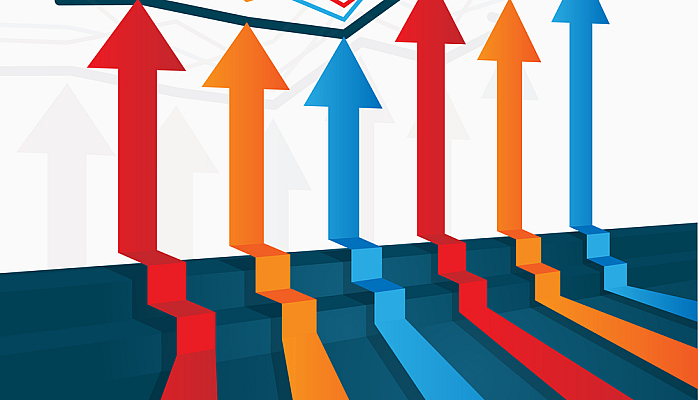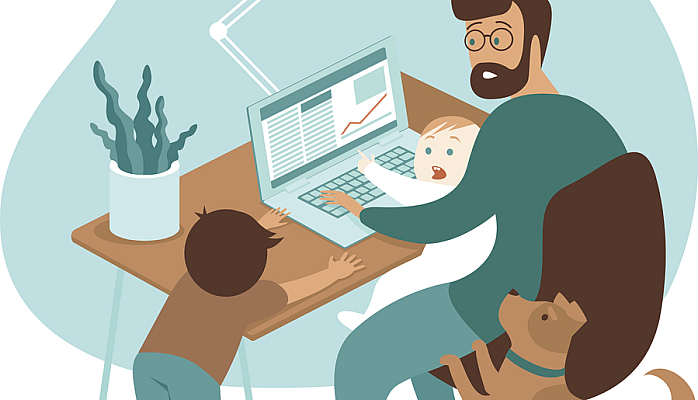
Reverse Mortgages: What Are They?
Reverse mortgages are a type of loan that lets you borrow against the equity in your home without having to sell it. They are typically a good option for homeowners who want to make improvements or supplement their income.
But they can also lead to serious financial problems if you don't use the money wisely. You should consider them carefully before you take out a reverse mortgage.
They are a type of loan
Reverse mortgages, also known as equity conversion loans, are a type of loan that allows homeowners to access their home's equity without having to sell the property. They can be a great option for senior homeowners who are living on Social Security, pensions or retirement savings and want to make their retirement more comfortable.
Reversing mortgages convert a portion of your home's equity into cash that you can use for any purpose, and they usually offer tax-free income. They can be used to pay for medical bills, cover mortgage payments or supplement retirement income.
However, because reverse mortgages are loans, borrowers must be careful to ensure that they meet all of the lender's requirements. These include paying on mortgage insurance, avoiding foreclosure and keeping up with property taxes, insurance and maintenance expenses.
These guidelines are designed to protect lenders from losses in case a borrower defaults. In addition, government-backed reverse mortgage programs require a buffer to cover property values that may fall in value.
There are several types of reverse mortgages, but the most common is a government-insured Home Equity Conversion Mortgage (HECM). This loan, insured by HUD and FHA, allows borrowers to access a percentage of their home's equity based on their age as well as the value of their home.
Borrowers can receive the money in a lump sum, monthly installments, a line of credit or a combination of these. In most cases, the money isn't repaid until the borrower sells the home or dies.
When a borrower dies, the remaining balance of the loan is paid to heirs or the property can be sold to repay the lender. In some cases, the heirs can buy the home for the balance owed or 95% of the property's value (whichever is less).
The interest rate on a reverse mortgage tends to be higher than on conventional mortgages. The interest is compounded, so it increases over time. This means you'll have to pay more interest in the long run if you delay repaying your loan.
It's important to consult a financial planner before deciding to take out a reverse mortgage. They can explain the options and help you find the best one for your needs. They can also help you avoid scammers who defraud seniors.
They are a source of income
Reverse mortgages are a type of home loan that can be used to supplement retirement income. They can be useful for many people, but they may not be right for everyone.
Many seniors who are 62 and older have a significant amount of equity in their homes. These homeowners can use this money for a variety of things, such as paying off the rest of their mortgage or putting a large sum toward home improvements.
A reverse mortgage can help you access this money, which is tax-free, and it won't affect your government benefits. However, it's important to remember that a reverse mortgage can be complicated and that it is best to talk with someone who can explain the process.
If you are considering a reverse mortgage, it is also a good idea to discuss your retirement goals with a financial planner. They can help you determine if a reverse mortgage is the right fit for you and can recommend ways to spend the funds.
Some financial planners recommend using a reverse mortgage as a line of credit to cover expenses when the market downturns. This can be a good strategy, as it allows borrowers to avoid tapping their retirement accounts during periods of the financial crisis.
While there are a few different types of reverse mortgages, the most common one is the HECM (Home Equity Conversion Mortgage). It allows homeowners to tap the equity in their homes without having to make monthly payments or pay interest on the balance if they don't live in the home anymore.
In return, you get a lump sum of cash at the end of the contract. This can be a great option for people who want to make a large purchase or who have other financial needs and need a lot of money upfront.
You can also receive regular payments if you prefer. These can be in the form of a fixed or variable payment, depending on your age and lender's policy.
The most popular way to get a reverse mortgage is with an FHA HECM, but there are other types of reverse mortgages that can be obtained by non-government lenders. These include proprietary reverse mortgages, which allow you to tailor your home loan to specific uses. Some of these loans are more expensive than other options, so it's important to compare the costs and benefits before deciding.
They are a tool for retirement planning
Reverse mortgages have transitioned from a last resort to an important tool in retirement income planning. They've even become a staple of many financial planners' portfolios, according to research.
A homeowner can use a reverse mortgage to tap home equity, without selling the property or taking out a new loan. They're also available as a line of credit that can grow over time.
The mortgage can be repaid with a lump sum or as regular monthly payments until the loan and interest are repaid. In most cases, the homeowner can remain in the home as long as they meet the lender's requirements, including paying property taxes and homeowners insurance.
Those requirements are typically designed to help protect the property, so you should understand them before applying for a reverse mortgage. In addition, you should consider how your current healthcare expenses may affect your ability to keep up with repayments.
There are also some disadvantages to this type of loan. One is that the loan might have to be repaid early. This can happen if the homeowner dies or moves out, for example. It can also occur if the borrower misses a payment on property taxes or homeowners insurance.
Another risk is that a reverse mortgage can increase the owner's debt to income ratio. This is a big concern for retirees, who need to avoid taking on more debt than they can afford.
For those who do take out a reverse mortgage, it's a good idea to work with an experienced financial planner or tax professional to determine the best strategy for repaying the loan. In some cases, the lender will require that you sell your home to pay off the loan if you don't make repayments.
Reverse mortgages are a good option for older Americans who have no other source of income and want to stay in their homes. But they aren't right for everyone. Some people are better off seeking other sources of income, such as a side business or refinancing their existing mortgage.
There is a risk
Reverse mortgages are a risky investment because they increase debt and can use up your home equity. They also can cause your heirs to lose your home if they can’t pay them off or get it for enough money to pay off the reverse mortgage.
While they’re a great way to boost your income and pay for expenses, it’s important to understand what you are getting yourself into before you apply. This can help prevent you from becoming a victim of a reverse mortgage scam.
Generally, the best reverse mortgages are those that are insured by the government. These are called HECMs, or Home Equity Conversion Mortgages. These mortgages have a low default rate, but they require an upfront insurance premium and an annual fee that is 0.5 percent of the loan.
The federal government also requires lenders to have counseling sessions before offering reverse mortgages. These sessions cover the risks associated with a reverse mortgage, including how much you will owe over time and what options are available to you.
Another risk of reverse mortgages is that you can’t predict when you will need to repay them or sell your home. If you don’t need the cash right away, you can set up a special payment plan with the lender and make payments for as long as you live in your house.
Finally, there are many different kinds of reverse mortgages and you should choose one that best suits your financial situation. Single-purpose reverse mortgages are great for helping with specific needs, such as paying off bills or relocating to a new home.
Proprietary reverse mortgages, on the other hand, are more flexible and can be used for any purpose. They’re a good option for seniors who want to focus on specific financial goals, such as paying off debt or securing a retirement nest egg.
Reverse mortgages are an excellent tool for older homeowners who need a large sum of money for a specific purpose. But they are not for everyone. They are only an option if you have sufficient home equity to qualify.













Community Discussion